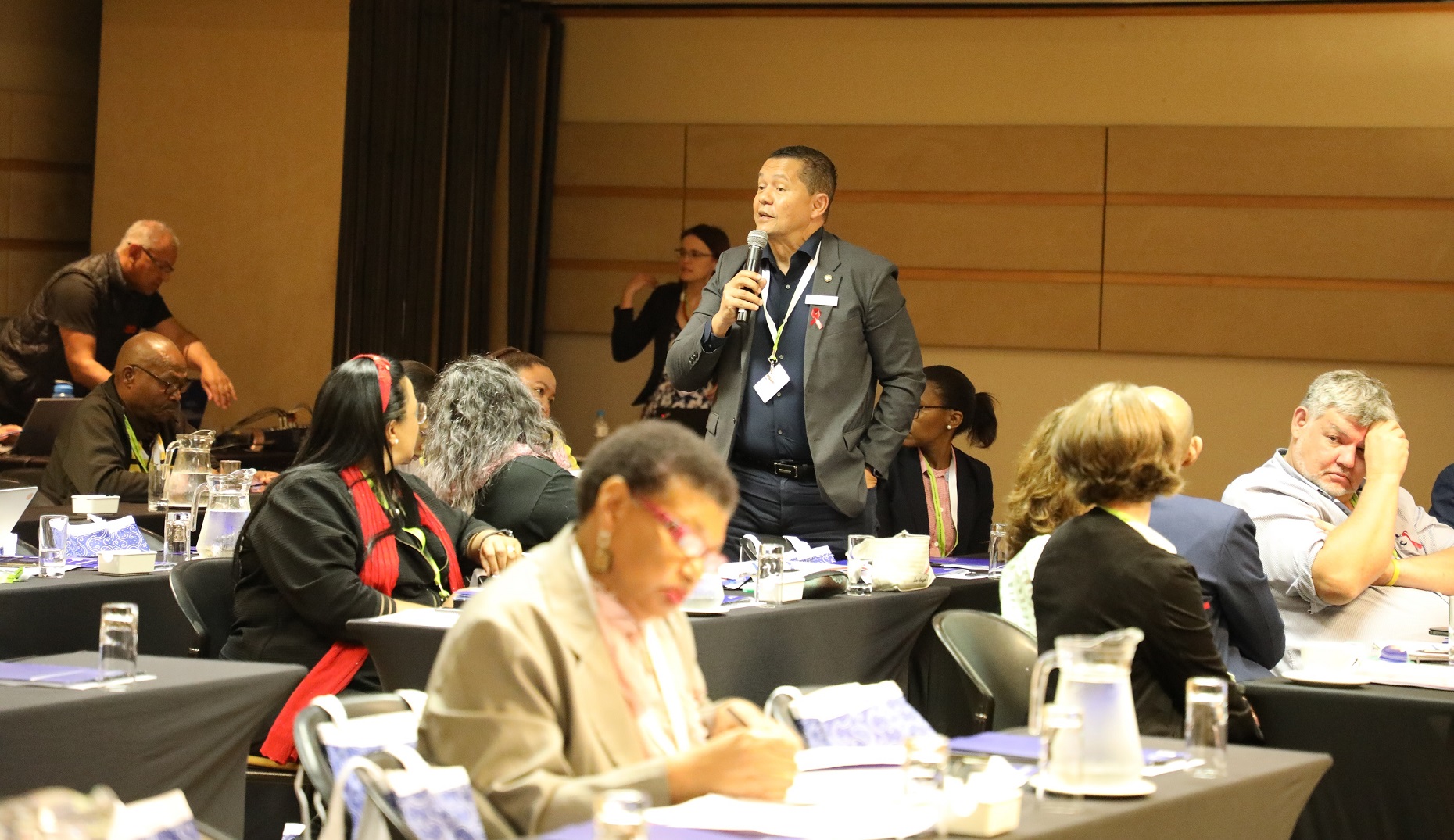
News
Working together to find solutions to the HIV/AIDS epidemic in the Western Cape
Ahead of World AIDS Day on 1 December, the Western Cape hosted a provincial symposium involving key stakeholders to find solutions related to HIV from district healthcare, science, civil society, youth and community, and funding as the different stakeholders work towards ending the AIDS epidemic as a public health threat by 2030. This year, the province included the voices of youth and community organisations to hear the views and perspectives from ordinary people and their experience of the province’s responses to HIV through their interaction with the public health system.
Speaking at the symposium virtually, Western Cape Minister of Health, Dr Nomafrench Mbombo, said: “I would like to encourage all to use condoms to prevent transmission by reducing the risk of exposure to HIV and sexually transmitted infections (STI) during sex. To the youth I would like to say abstain and delay the beginning of your first sexual experience, and be mutually faithful to one sexual partner. Go for your regular screening and testing (every 3 months) and know your HIV status. Be in touch with your body and seek medical help when you show signs of STIs. Inform your partner(s) when infected with a STI so that they too, can receive treatment, as early as possible.”
Presenting the strategy of the Provincial Council on AIDS and Tuberculosis (TB) Dr Keith Cloete, Head of Department: Western Cape Government Health, said the Review Working Group last week recommended
1) a localised focus on priority areas in define geographical areas,
2) expand 90-90-90 targets to include a focus on prevention, and
3) give due consideration to the social and structural drivers of HIV and TB.
“COVID-19 lessons will stand us in good stead for the HIV and TB recovery strategy. Connectedness, collaboration and meaningful relationships will be essential ingredients of a coherent strategy. This involves a whole-of-government and whole-of-society approach, and the next committee engagement on 7 December will formalise the process as part of the enhanced multi-sectoral response to HIV and TB in the Western Cape.”
In line with the United States Agency for International Development (USAID) Fast-Track approach, stakeholders affirmed their support towards the 95-95-95 targets for treatment: 95% of people living with HIV should know their HIV status; 95% of people who know their status should be on treatment; and 95% of people on treatment have suppressed viral loads. With fewer new HIV infections, the AIDS epidemic will be less of a public health risk in the province.
In 2021, according to the United Nations, 38.4 million people were living with HIV, over 650 000 died from AIDS-related illnesses, and 1.5 million were newly infected. Priorities to address the HIV/AIDS burden across the Western Cape Government Heath include:
- The integration of health services speaking to all efforts to end unequal access to health services, treatment, information, as well as improvements to coordination, synergy and inclusivity. This calls for a whole of government and whole of society approach
- The need to scale up “equalisation” and “integration” efforts towards the ultimate objective of stopping the spread of AIDS by 2030. Equalisation is needed to address human rights-related barriers to HIV & TB services.
- Through integration, efforts to find patients who have been lost to care, as well as children who missed their immunisation can be scaled up.
What you can do:
- Know your HIV status by screening and testing every three months.
- Show your support on social media platforms such as Facebook, Instagram, Twitter, and WhatsApp using the hashtag #Equalise&IntegratetoEndAIDS and or #Enoughisenough (16 days campaign).
- Arrange or join activities on 1 December to commemorate World AIDS Day and or during the 16 days of activism for no violence against women and children (25 November -10 December).
- Wear a red ribbon, the universal symbol of awareness of, support for and solidarity with people living with HIV.
- Light a candle or have a moment of silence for those who have lost their lives to HIV, AIDS and sexual and gender based violence.
- Wear Black on Thursdays to show support for ending sexual and gender based violence.
For more information:
- AIDS line: 0800 012 322
- Gender-Based Violence Command Centre: Call 0800 428 428 or dial *120*7867#


